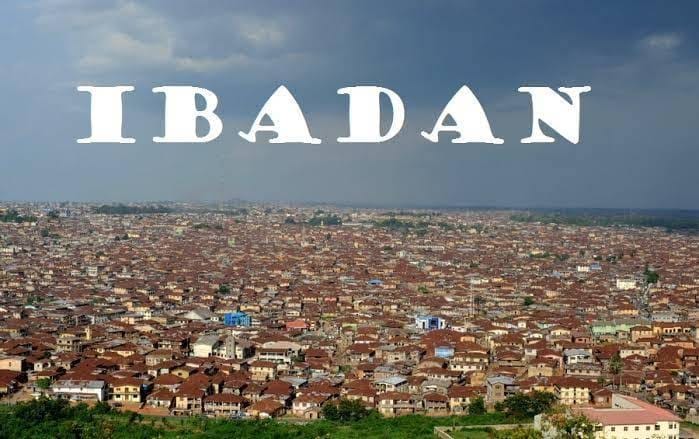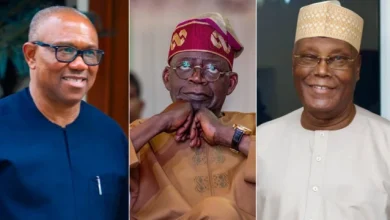Opinion
Who Will Save Ibadan From The Current Onslaught By Non-Indigenes In Oyo State?

-By Mogaji Wole Arisekola
The ancient city of Ibadan, once a dominant force in the political and socio-economic landscape of Oyo State, now finds itself in a precarious position. Non-indigenes from other parts of the state, particularly from Oke Ogun and other regions, are increasingly occupying significant positions of power and influence that belongs to the state. This shift in dynamics raises urgent questions about the future of Ibadan’s influence and the fairness of representation within the context of the happening in the country.
One of the most glaring issues is the apparent marginalization of Ibadan indigenes in political appointments. Traditionally, Ibadan, as the capital and the largest city in Oyo State, has wielded considerable power. However, recent trends indicate a stark departure from this historical norm. Key appointments and positions that once naturally fell to Ibadan indigenes are now being distributed to individuals from other regions.
This redistribution of power has led to a sense of disenfranchisement among the people of Ibadan. Many feel that their contributions and importance to the state are being overlooked, and their influence is being systematically eroded. This sentiment is particularly strong regarding appointments in the state’s executive branch, where many strategic positions are now held by non-indigenes. The state governor’s recent board appointments further exacerbate these concerns, as they seem to favor regions that did not significantly support him in the elections, thereby sidelining Ibadan despite its substantial electoral contributions.
The judiciary is another arena where Ibadan indigenes feel aggrieved. The appointment of the current Chief Justice of Nigeria, who hails from outside Ibadan, has been a focal point of contention. Accusations abound that he has systematically favored his relatives and associates from his hometown over qualified candidates from Ibadan. This nepotism extends to the allocation of judicial appointments and resources, with Ibadan professionals being conspicuously overlooked.
Moreover, infrastructural developments, which are crucial for the city’s growth, are also allegedly being redirected. A significant example is the refusal to reconstruct a major road in Ibadan, with directives to instead prioritize similar projects in the Chief Justice’s hometown. Such actions not only undermine the development of Ibadan but also foster a sense of injustice and neglect among its residents.
The cultural and economic implications of this marginalization are profound. Ibadan has historically been a cultural hub, with its rich heritage and significant contributions to Yoruba culture and Nigerian history. The shift in political and judicial favoritism threatens to dilute this cultural prominence. As non-indigenes gain more control over political and economic resources, the unique cultural identity of Ibadan may be overshadowed.
Economically, the marginalization can lead to reduced investment in Ibadan’s infrastructure and public services. If key developmental projects and appointments continue to favor other regions, Ibadan might face a decline in business opportunities and economic growth. This could exacerbate existing socio-economic challenges and hinder the city’s potential to attract new investments and talents.
Addressing this situation requires a multi-faceted approach. Firstly, there needs to be a conscious effort to ensure equitable distribution of political appointments and resources. This involves not only recognizing the historical significance of Ibadan but also acknowledging its current contributions to the state’s development.
Secondly, the judicial system must be seen as impartial and just. Appointments should be based on merit rather than personal affiliations. Transparency in the appointment process and infrastructural developments is crucial to restore faith among Ibadan indigenes.
Moreover, the state government should initiate policies that promote inclusive growth. Development projects should be evenly distributed to ensure that all regions, including Ibadan, benefit from the state’s resources. Such measures would help mitigate feelings of disenfranchisement and foster a sense of unity and collective progress.
The marginalization of Ibadan indigenes in Oyo State’s political and judicial spheres is a pressing issue that demands immediate attention. Ensuring fair representation and equitable distribution of resources is not just a matter of justice but also of preserving the cultural and economic vitality of Ibadan. The city’s historical significance and its contributions to the state’s development cannot be ignored. It is imperative that stakeholders come together to address these grievances and work towards a more inclusive and balanced approach to governance in Oyo State. Only through such efforts can Ibadan reclaim its rightful place as a cornerstone of the state’s identity and prosperity.
Mogaji Wole Arisekola writes from Ibadan.






